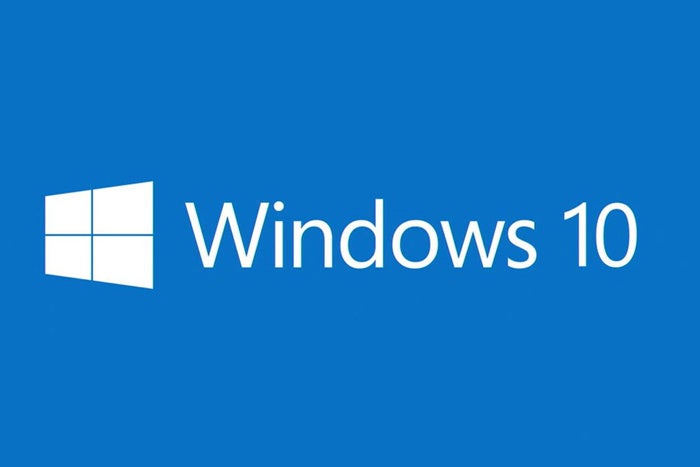Technology

This year's RSA Conferencein San Francisco had a lot of ground to cover. Cybersecurity, of course. Fending off ransomware attacks. Building security best practices into employee training.
But, according to CSO's Steve Ragan, the hottest topics at the 2018 conference were this month's looming GDPR deadline and blockchain, blockchain, blockchain. (In fact, the two are often part of the same conversation.)
[ Related: How to protect Windows 10 PCs from ransomware ]Ragan, who attended RSA, spoke withComputerworldExecutive Editor Ken Mingis about what he learned, with a special focus on the May 25 GDPR deadline and what companies are scrambling to do to protect their data.
- Details
- Category: Technology
Read more: Mingis on Tech: Lessons from RSA 2018
Write comment (93 Comments)
Microsoft on Tuesday said that some 200 million enterprise workers now run Windows 10, a sign that corporations and other businesses are close to schedule to scrub Windows 7 from their machines before that older OS retires in about 20 months, an analyst argued.
"The 200 million resonates with me, based on what I'm hearing from clients," said Stephen Kleynhans of Gartner Research. Migrations to Windows 10, he added, are progressing "pretty aggressively."
[ Further reading: Windows 10 April 2018 update: Key enterprise features ]Joe Belfiore, a corporate vice president who leads the Windows 10 team, revealed the number at Microsoft's Build developers conference Tuesday. "Right now, there are over 200 million people in corporate accounts using Windows 10," Belfiore said as he claimed deployment is "really ramping up" in the enterprise. "We've seen that [Windows 10] adoption rate increase now at 79% year-over-year growth."
- Details
- Category: Technology
Read more: Microsoft: 200M now utilize Windows 10 in the business
Write comment (90 Comments)There's a considerable data-loss occurrence at this little company, with essential portions of details going missing out on, and the only IT pilot fish there has to rush to bring back the systems and get everything working again.But fish understands his task isn't done. Curious about how this took place to among my systems, which I take pride in and have high standards for, I started a complete analysis of our system logs, fish says. I discovered that the missing info sets were each clearly erased in our software, and the logs revealed that each deletion operation was performed from an internal IP address. So fish cross-checks against the company's Active Directory in order to match the time stamps and discover the user. Ends up the offender who erased the details from the core system is a just recently worked with assistant to one of the managers-- who also occurs to be a long time friend of that supervisor.
- Details
- Category: Technology
Read more: Sure, proceed and ask-- but do not inform
Write comment (96 Comments)
This year, blockchain testing programs will evolve from pilot tests to real-world platforms, and supply chain management is among the industries the distributed ledger technology is set to disrupt.
In January, Maersk and IBM announced a joint venture todeploy a blockchain-based electronic shipping system that will digitize supply chains and track international cargo in real time.
[ Related: The top 5 problems with blockchain ]The new platform could save the global shipping industry billions of dollars a year by replacing the current EDI- and paper-based system, which can leave containers in receiving yards for weeks.
- Details
- Category: Technology
Read more: Blockchain will be the killer app for supply chain management in 2018
Write comment (90 Comments)The UK and the USA have always hadanenduring bond, with diplomatic, cultural and economic ties that have remained firm for centuries.
We live in an era of profound change, and are living with technologies set to change things ever faster.If Britain and America work together to develop these technologies for the good of mankind, in a way that is open and free, yet also safe and good for our citizens, we can maintain the global lead our nations have enjoyed in the fields of innovation.
Over past months we have seen some very significant strides forward in this business relationship. All of the biggest US companies have made decisions to invest in the UK. Apple is developing a new HQ in the iconic Battersea Power Station, close to the new US embassy, while Google is building a billion dollar new HQ in the increasingly fashionable KingCross. Facebook, Amazon, IBM and Microsoft are all extending their operations, and a multitude of smaller US firms are basing their international headquarters in London.
They are all coming here because as we prepare to leave the EU we are building a forward looking Britain that is open to the wider world, and tech is at the heart of this.
Similarly, there have been major expansions or new investment from British firms into the US. Jaguar Land Rover, the UKlargest automotive manufacturer, supports more than 9,000 jobs in the USA and have recently opened their new multimillion-dollar corporate North America HQ in New Jersey. iProov, a leading British provider of biometric facial verification technology, became the first international company to be awarded a contract from the US Department of Homeland Security Science - TechnologyDirectorateSilicon Valley Innovation Programlast month.

We want to work with our global partners & to share expertise, and encourage investment & as we harness technology for the wider good. And that of course includes our old friend and closest ally, the USA.
We have a great deal to offer.
The UK was recently ranked the most AI ready nation among all the OECD countries. In the past three years, new AI start-ups have been created in the UK on an almost weekly basis.
Recently, UK government and industry together committed over $1 billion to support our AI sector, much of which will go towards entrepreneurs. Funding has been set aside to create a nationwide network of tech incubators, that we&re calling &Tech Nation&, which will support new AI businesses as they get off the ground.
We are also excited by — and I am a firm advocate for — the development of blockchain and similar technologies. The UK is leading the way in many areas where blockchain has the potential to be used, such as Fintech. There are now more people working in UK Fintech than in New York or in Singapore, Hong Kong and Australia combined.
And we are eminent in the development of immersive technologies, like Augmented and Virtual Reality, which look set to radically improve many areas of life in coming years, with applications as varied as flight simulation and surgical training techniques.
There is so much to be gained from close collaboration between our two countries on these new technologies and from sharing our expertise.

Together, we can reap the economic benefits of stealing an early lead in their development. We estimate that AI, for example, if widely adopted, could add $33 billion to the UK economy. But, perhaps most importantly, we can also work together to build a strong regulatory and ethical frameworks for their wider application.
It is the role of governments across the world, the UK and US included, to set frameworks for these decentralised, cross border systems so we can manage their use in a safe and effective way.
Our aim should be to harness the power and capability of technology but always for the benefit of, and in service to the populace.
We in the UK are avowedly pro-tech, always seeking to put its power in the hands of our citizens.
We have all learned valuable lessons from the recent scandals regarding data use, most recently around Facebook use of data.
We want to build a system that protects and cherishes the freedom of the Internet while protecting the rights of individuals, and their property, including intellectual property.
We want to see freedom in a framework; where our tech entrepreneurs have the space to innovate, knowing they do so with full public trust.Trust underpins a strong economy, and trust in data underpins a strong digital economy.
So in the UK we are developing a Digital Charter, to agree norms and rules for the online world and put them into practice. Our starting point is that what is unacceptable offline should not be tolerated in the online world. That includes how tech companies treat private citizens and use their data, as well as how people treat each other online.
Important changes like these cannot be agreed by one country alone. It is more important than ever that we work together and find common ground so we can make sure that tech continues to change the world for the better. Based on our mutual love of freedom and individual rights Britain and America have through history risen to challenges together. I firmly believe working together we can build that brighter future.
- Details
- Category: Technology
Read more: The UK and USA need to extend their “special relationship” to technology development
Write comment (98 Comments)In a remarkable development, President Trump has thrown an olive branch to controversial Chinese telecom firm ZTE .
The company, which sells telcomnetwork equipment and consumer devices including smartphones, said on Wednesday that it would cease its main business operations afterthe U.S. Department of Commerce announced a seven-year export restriction for the company, resulting in a ban on U.S. component makers selling to ZTE.
The company has been banned from selling equipment in the U.S., but shutting out supply chain partners like Intel, Qualcomm and Google is potentially catastrophic. (The fact ZTE postponed its earnings tells you all you need to know.)
Reports suggested that the Chinese government was working on ZTEbehalf to find a compromise, and it looks like Chinese Premier Xi Jinping himself got in touch with the U.S. President, who said today in a tweet that is he &working[…]to give[…]ZTE a way back into business, fast.&
Somewhat bizarrely, Trump cited a loss of jobs in China as a motivating factor.
Given that U.S. sanctions were imposed on ZTE due to threats to national security andits violation oftrade sanctions with Iran and North Korea, Trumpdesire to give the company another chance in the U.S. is truly unexpected.
It also doesn&t align with recent events.
The Trump administration has used the premise of national security to block a number of business deals that would see Chinese companies buying up American firms — including Alibabaproposed acquisition of MoneyGram and Broadcomeffort to buy Qualcomm.
Then, of course, the President is involved in an aggressive trade dispute with China, which, on the U.S. side, includedtariffs on about $60 billion of Chinese goods, the bulk of which were focused on the high-tech industry.
Granting a reprieve to ZTE — a firm with over 70,000 employees, over $17 billion in annual revenue and close ties to the government — doesn&t fit with the strategy to hurt China, but then Trumpadministration is hardly by the book and often times seemingly pragmatic. Well, the PresidentTwitter account, at least.
Potentially, there may be pressure behind the scenes from U.S. suppliers who fear a loss of business as companies like TaiwanMediaTek plan to step up in a bid to work with ZTE in the event that it is blocked from U.S. partners.
Even with Trumpunexpected backing, ZTE is up against it to roll back the sanctions. Thereclearly a gap of thinking between the President and the rest of government.
Trump has frequently lashed out at the House and the Senate, not to mention his own party, over differences of opinion and his frustration with politics. In this case, ZTEinfringements are so major — trade violations and national security concerns — that it is hard to envisage the company getting a pass, even with support from the White House.
To recap, herewhatFBI Director Chris Wray told the Senate Intelligence Committee in February:
&We&re deeply concerned about the risks of allowing a company or entity that is beholden to foreign governments that don&t share our values to gain positions of power inside our telecommunications networks.&
AndCommerce Secretary Wilbur Ross speaking in Aprilabout the violation of sanctions on Iran and North Korea, which ZTE pleaded guilty to:
&ZTE made false statements to the U.S. Government when they were originally caught and put on the Entity List, made false statements during the reprieve it was given, and made false statements again during its probation. ZTE misled the Department of Commerce. Instead of reprimanding ZTE staff and senior management, ZTE rewarded them. This egregious behavior cannot be ignored.&
Just another day in TrumpAmerica.
- Details
- Category: Technology
Read more: President Trump says he’s working to give ZTE a reprieve
Write comment (92 Comments)Page 5440 of 5614

 19
19